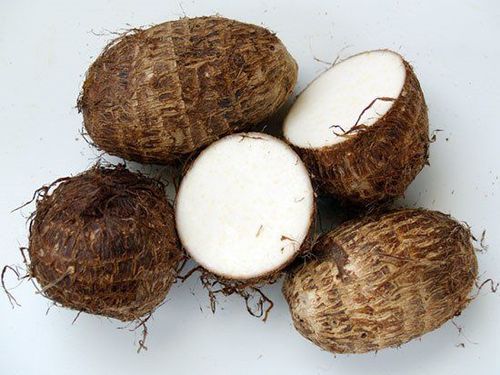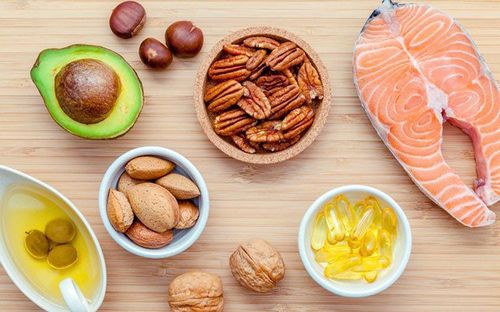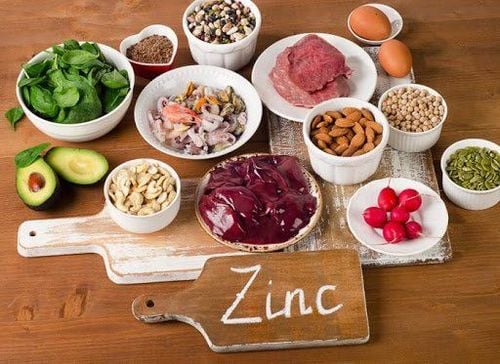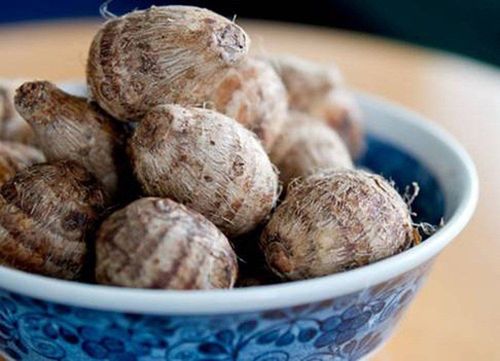Sweet potatoes are a familiar, necessary, and nutritious food for children, especially in the weaning period. Sweet potatoes provide nutrients as well as vitamins and minerals that are good for the children. However, children should not eat too much or too often. Eating too much or too little of any food is always harmful to health.
1. What are the benefits of sweet potatoes for children?
Sweet potatoes are a familiar, necessary, and widely preferred food. Sweet potatoes are not only delicious but also very good for children's health, especially in the weaning period.
In 100g of sweet potatoes, there are many nutrients such as protein, starch, fat, fiber, and many types of vitamins and minerals in a fairly similar ratio. In particular, the content of micronutrients in sweet potatoes is many times higher than other foods.
The nutritional content of sweet potatoes includes:
• Rich in vitamin A and beta-carotene: Sweet potatoes , which have a bright orange color, are very rich in vitamin A, an important nutrient for eye development, so it is very good for the health of children. Moreover, sweet potatoes also contain a lot of beta-carotene, which is a precursor of vitamin A, and will provide the body with a large amount of vitamin A. Therefore, it is completely correct for parents to give their children sweet potatoes during the weaning period.
• Rich in starch: Sweet potatoes are very rich in starch (carbohydrates) so they provide children with abundant energy, allowing them to play all day without lacking energy.
• Rich in fiber: Sweet potato is also rich in fiber, which is very good for children's digestive system. Giving children sweet potato will supplement the necessary amount of fiber, helping to treat constipation in children. On average, 100g of cooked peeled sweet potatoes contain about 3.9 grams of fiber. In addition, for children with constipation, eating sweet potato also improves bowel health as well as digestive problems.
• Rich in vitamins: Besides vitamin A, sweet potato also contains many vitamins that are good for children's health such as B vitamins (B1, B2, B3, B9...) support the metabolism and strengthen the body's immune system; Vitamin C enhances immunity and is very good against oxidation; Vitamin E enhances memory and keeps hair and skin healthy; Vitamin K keeps bones and joints healthy and supports the blood clotting process. The vitamins in sweet potato help the organs in the child's body develop healthily.
• Rich in minerals: Sweet potato is a mineral-rich tuber. Children who eat sweet potatoes will be fully supplied with iron, folate, calcium, zinc, magnesium, potassium, manganese, and phosphorus. These minerals help the metabolism in young children to take place smoothly, allowing the body to grow and develop.
With a high content of nutrients and a variety of types, colors, and diverse ways of preparing dishes for children, sweet potatoes have become a preferred food choice. Especially for children in the weaning period, sweet potato dishes bring many health benefits to children such as:
• Using sweet potatoes as a main weaning food helps the body develop well, especially the eyes and brain.
• The high content of micronutrients in sweet potatoes strengthen the immunity and support the metabolism in children.
• The high fiber content makes sweet potatoes a food that supports the digestive system, extremely effective in treating constipation in children.
• Sweet potatoes are easy to eat, have a mild sweet taste which makes children really adore them
• There are many types of sweet potatoes with different colors that will stimulate children's vision, increase interest and deliciousness when eating.
• Dishes made from sweet potatoes are very simple, easy and convenient to prepare.

2. Is it good for children to eat a lot of sweet potatoes?
Sweet potatoes are nutritious, especially in vitamin A and beta-carotene, which help children have bright eyes and fight against bacteria; fiber and vitamins support the digestive system, stimulate bowel movement, and prevent constipation. Therefore, many nutritionists recommend adding sweet potatoes to the daily diet for healthy growth of children.
However, children should not eat sweet potatoes too much and too often. Children's meals, especially those in weaning age, need to ensure a full and balanced diet of four essential nutrients. Eating too much or too little of anything is always harmful to health. Similarly, if parents give their children too much sweet potato and too often, it will ruin the child's development. The reasons are:
• Sweet potatoes are also high in starch but unlike rice. The starch in sweet potatoes increases the secretion of gastric juice in the digestive system, causing children to burp, to experience bloating and intestinal cramps. For children with diabetes, absolutely do not eat sweet potatoes on an empty stomach as it will aggravate the disease.
• Sweet potatoes are high in fiber, which is very good for children's digestive system, but eating it too frequently can lead to a lack of protein. Moreover, excessive consumption of fiber in sweet potatoes can increase the absorption of microminerals, causing the child's body to lack nutrients, which can lead to physical weakness.
Therefore, children should only eat about 100 grams of sweet potatoes a day. Besides that, parents should add vegetables and fruits in each meal and mix milk with the right amount of water according to the instructions. In particular, the main food source for children is still rice and beans, while potato is only supplementary crops because its nutrient content cannot be equal to rice.

3. How to choose and store sweet potatoes correctly
If sweet potatoes are not stored properly, they can easily sprout. At this condition, the nutrient content in sweet potatoes not only decreases but is also converted into harmful substances. Therefore, to maximize the absorption of nutrients in sweet potatoes, parents need to know how to choose and store sweet potatoes correctly.
• When choosing sweet potatoes, you should choose tubers with a uniform skin color, no scratches, scratches, or cracks, no bruising, feel firm and heavy. Avoid buying sweet potatoes that are pitted or black as this is a sign that the sweet potato is wormy and spoiled.
• You should buy sweet potatoes at reputable stores, avoid buying sprouted sweet potatoes.
• After buying sweet potatoes, if stored in the refrigerator, they should be washed, drained, and kept for about 5-7 days. However, there is no need to store sweet potatoes in the refrigerator, but simply keep them in a dry place at room temperature and should be used within 7 days. If you want to keep them longer, keep the soil layer intact, place the potatoes in a cool, dry, dark place at a temperature of about 15oC. However, do not leave the sweet potatoes for more than a month.
In summary, sweet potatoes provide nutrients as well as vitamins and minerals that are good for the children. However, children should not eat too much or too often. Eating too much or too little of any food is always harmful to health.
To arrange an appointment, please call HOTLINE or make your reservation directly HERE. You may also download the MyVinmec app to schedule appointments faster and manage your reservations more conveniently.








